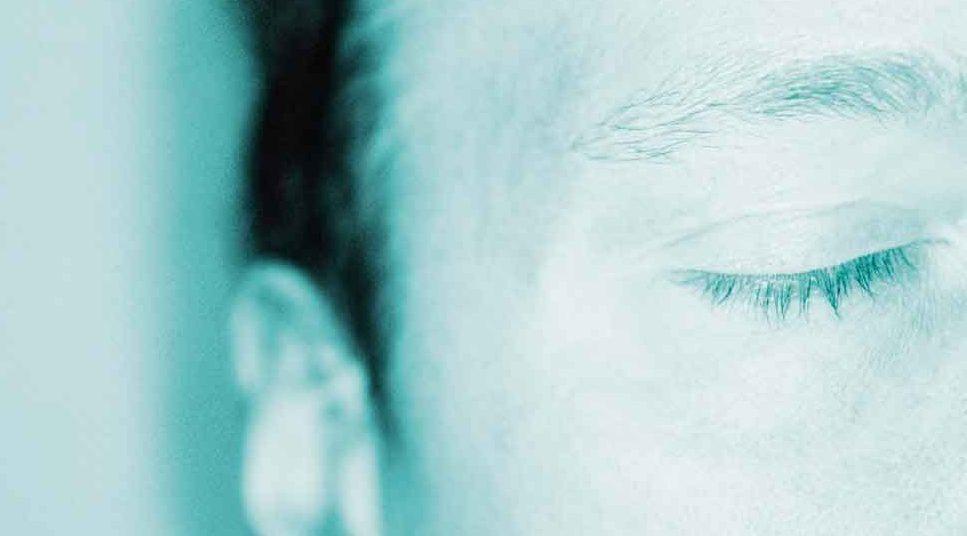What Is Psychosis?

Psychosis is the term that describes when a person is out of touch with reality. Episodes can be brief or long-lasting. Here's what you should know about psychosis.
When Joey Sklar was 18, he came home from a trip and walked into his parents’ home on a hot summer day in New Jersey wearing a heavy jacket. He flew into a rage when he saw them. “We thought someone had slipped him” a drug, said his mother, Dusty Sklar. She called the police, hoping he would be hospitalized.
Psychosis is the term that describes when a person is out of touch with reality. Joey felt cold on a hot day and didn’t understand that he was frightening his family.
YOU MIGHT ALSO LIKE: Our Schizophrenia section
Psychotic episodes can be brief, or they may seem so. By the time the police arrived, Joey convinced them that he was fine. Then he ran away, his mother says. When his brother and father found him in Boston, he told them that he was Jesus. This time he agreed to check into McLean Hospital, a famous psychiatric hospital affiliated with Harvard Medical School. At the hospital, “when he found that all the other young men thought they were Jesus, he gave up the idea,” Dusty says. Some rationality had come back.
Symptoms of psychosis
The symptoms of psychosis are delusions, clearly false beliefs like “I’m Jesus” or “You’re the devil,” and hallucinations, which can involve any of the senses. You might see, hear, taste, smell, or have tactile sensations in a world all your own. You might speak nonsense, or break social rules, walking into the street naked. Most psychotic people are sad and confused rather than violent.
People tend to associate psychosis with schizophrenia or bipolar disorder (Joey’s diagnosis). But psychotic symptoms can arise for many reasons.
You can hallucinate and develop delusions from sleep disorders. One episode can give you symptoms similar to those suffered by people with schizophrenia.
People withdrawing from alcohol or drugs often hallucinate crawling insects. Up to half of people with Parkinson’s disease, and about 20 percent of people with dementia with Lewy bodies, have visual hallucinations, studies suggest.
YOU MIGHT ALSO LIKE: Our Bipolar Disorder section
Around 15 out of 100 Americans will experience psychosis at some time in their lives. Each year, about 100,000 adolescents and young adults experience their first psychotic episode. Many don’t get help for as long as a year.
Schizophrenia
To be diagnosed with schizophrenia, you must experience psychotic symptoms for at least six months. Warning signs include:
- Lack of concentration
- Bad hygiene
- Feeling suspicious
- Spending more time alone
- Feeling emotionless or struck intensely by new ideas
- Falling behind in school or at work
If you or someone you love matches several items on the above checklist, consult a psychologist, psychiatrist, or trained social worker — especially if the symptoms intensify or persist.
Early treatment of psychosis increases the chance of a successful recovery. Many people never have another psychotic episode. Some can live complete lives, although symptoms occasionally return.
Bipolar disorder
Bipolar disorder is a chronic mental illness that causes extreme shifts in mood and behavior, from episodes of mania to depression. It can develop at any point in life but is most commonly diagnosed in early adulthood. It affects about 2.8 percent of the United States population, and it is equally likely to occur in both men and women.
Manic symptoms of bipolar disorder include:
- A period of elation, excitement, and high physical energy
- Feeling jumpy and irritable
- Being unable to sit still, relax, and sleep
- Feeling your mind is moving very fast
- Believing you have superhuman abilities
- Hallucinations or delusions
Depressive symptoms of bipolar disorder include:
- Low energy
- Being unable to engage in physical activity
- Feeling hopeless
- Disinterested in normal activities
- Trouble concentrating
- Extreme worry, distrust, or suicidal thoughts
Depression
Psychosis can accompany depression.
- Symptoms include:
- Feeling hopeless and helpless
- Thoughts of suicide
- Feeling you no longer have a normal amount of energy for daily activities
- Profound fatigue with no obvious reason
- Cognitive changes, including an inability to concentrate and memory problems
- Moving or talking slower than a person would normally move and speak
- Having trouble sitting still and restlessness
- Difficulty sleeping, early-morning awakening, or having great difficulty waking up (resulting in sleeping late)
- Appetite changes, either no appetite or eating too much
- Losing or gaining weight without trying, with no medical explanation
What you can do
If you ever suspect that someone you love is in danger of suicide or might have such poor judgment they could endanger themselves or others, act early. Avoid a confrontation, but secretly take away car keys, guns, alcohol, street drugs, or prescription medications that could cause an overdose.
Call 911 or the police and ask for a mental health wellness check.
Medication is standard care for someone with repeated psychotic episodes. Your loved one may have a choice between a daily pill or a monthly injection and side effects to manage. Many programs can help coordinate care, which will include support.
Resources
- Early Assessment & Support Alliance offers a program directory that lists early psychosis programs nationwide.
- Prodrome and Early Psychosis Program Network offers the Early Intervention for Psychosis Directory.
- National Alliance on Mental Illness (NAMI) has a hotline (1-800-950-NAMI (6264) and test helpline. The NAMI Helpline web page can connect you with the NAMI office in your state to find local help.
YOU MIGHT ALSO LIKE: How to Help a Loved One in a Mental Health Crisis
Updated:
October 31, 2023
Reviewed By:
Christopher Nystuen, MD, MBA